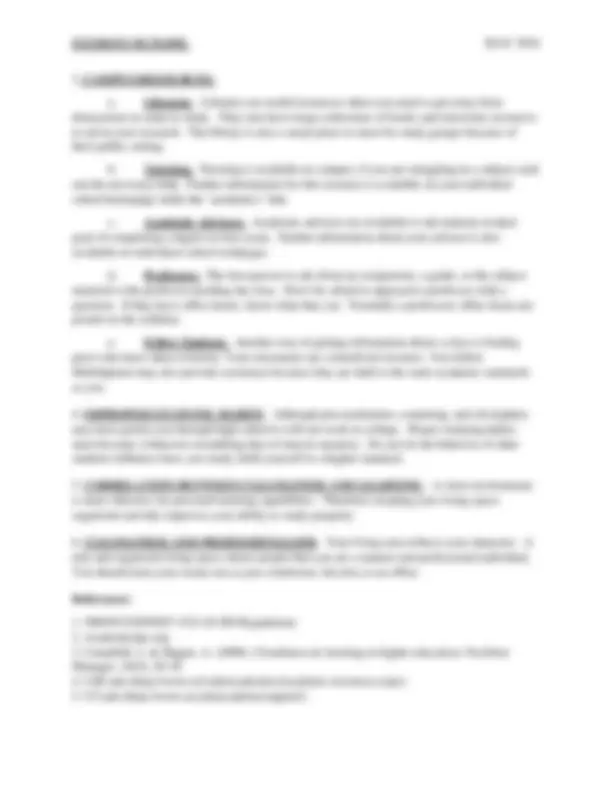



Study with the several resources on Docsity

Earn points by helping other students or get them with a premium plan


Prepare for your exams
Study with the several resources on Docsity

Earn points to download
Earn points by helping other students or get them with a premium plan
Community
Ask the community for help and clear up your study doubts
Discover the best universities in your country according to Docsity users
Free resources
Download our free guides on studying techniques, anxiety management strategies, and thesis advice from Docsity tutors
The importance of proper study habits and cleanliness for students in the navy and marine corps, providing techniques for effective note-taking, time management, stress reduction, and academic help-seeking. It also highlights campus resources such as libraries, tutoring, academic advisors, professors, and fellow students.
Typology: Exams
1 / 3

This page cannot be seen from the preview
Don't miss anything!


ENABLING LEARNING OBJECTIVE(S)
a. Note Taking. Take notes on the important items only. Not everything that is said in class needs to be annotated. Notes should be legible. Use different colored pens or highlighters to draw attention to key terms or concepts while reviewing your notes. It’s helpful to look over your notes before and after each class in order to prepare yourself for upcoming lectures. Reviewing notes allows you to take note of any questions you may have regarding the subject.
b. Time Management. Time management is the key to success in higher education. It is essential to analyze your use of time during the week and make the necessary changes to your schedule in order to study for class. Set your priorities and say “no” when outside influences begin to distract you. However, remain flexible in scheduling your time and look for opportunities to combine activities such as eating and socializing, or working out with your friends. The standard amount of hours to spend studying for each class are as follows:
Easy classes = 2 hours of studying for every class hour per week Average classes = 3 hours of studying for every class hour per week Difficult classes = 4 hours of studying for every class hour per week There are only 168 hours in a week. Thoroughly analyze your time in order to provide effective and efficient time management. The following chart will help you analyze where your time is spent:
c. Reduce Stress. You cannot completely eliminate stress from your life in college, however, there are simple things you can do to reduce the feelings of being overwhelmed. One stress-reducing techniques is to create a to-do list. This will create a feeling of accomplishment when you successfully complete each item and reduce the chances of you forgetting an assignment. Another tip to reduce stress is to save everything frequently and on multiple sources. Electronics are known for breaking at the worst possible time and flash drives can be “misplaced.” Lastly, do NOT wait until the night before an assignment is due to begin working on it.
d. Seek Help. Seeking help from either on or off campus resources is not a sign of weakness. If you are feeling overwhelmed then don’t wait until it’s too late to get help. Seeking advice from others will help to lighten the burdens of being a freshman in college. Where can they seek help?